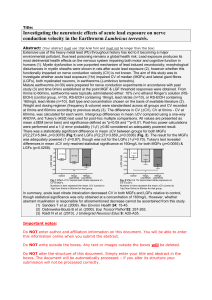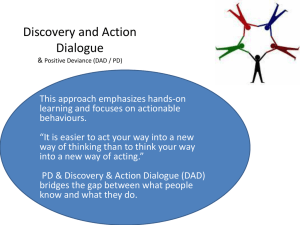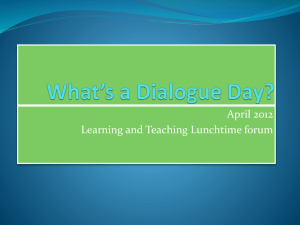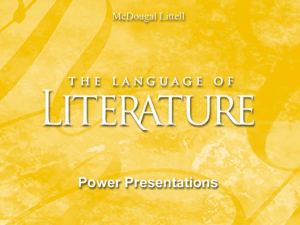Why is Interreligious Dialogue worthwhile?
advertisement
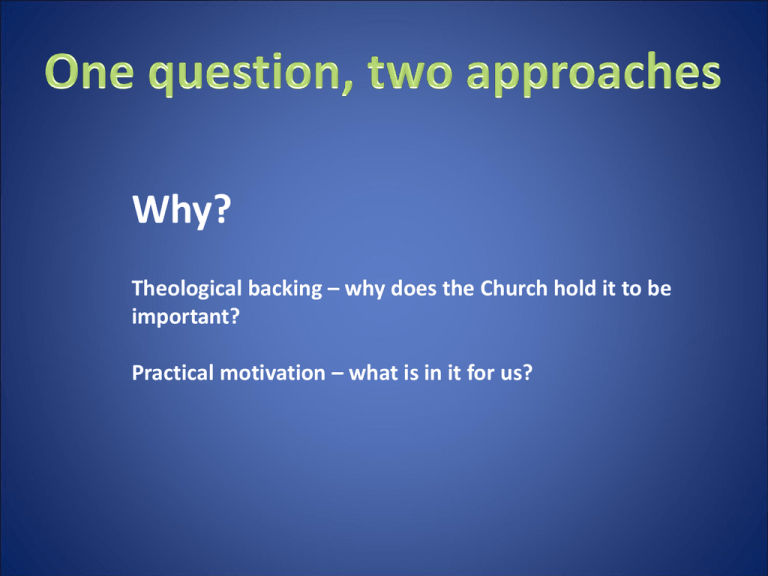
Why? Theological backing – why does the Church hold it to be important? Practical motivation – what is in it for us? All nations are one community and have one origin, because God caused the whole human race to dwell on the fact of the earth. They also have on final end, God, whose providence, manifestation of goodness and plans for salvation are extended to all. “Interreligious dialogue is a profoundly Christ-like work” (MGFS) Dialogue and proclamation are both evangelisation “Dialogue is an honest witnessing to our belief, and a sincere listening to the belief of the other person.” (MGFS) Church as the ‘sacrament’ or sign and instrument of communion with God and one another in our divided world (Lumen Gentium) This call by the Church is also a response to the God who calls to the Church (MGFS) – God is relational ‘inwardly’ and ‘outwardly’ Dialogue of salvation (Ecclesiam Suam) and “Signs of the times” “The Spirit’s presence and activity affect not only individuals but also society and history, peoples, cultures and religions” (Encyclical ‘Redemptoris Missio”) God’s engagement with all of humanity throughout history Close relationship and “rays and seeds” of the truth Dialogue needs a “profound willingness to listen” (Apostolic Letter Novo Millenio Ineunte) “Let Christians […] acknowledge, preserve and encourage the spiritual and moral truths found among non-Christians.” (Nostra Aetate) “Real dialogue begins when we encounter the irreducible ‘otherness’ of the other religion” MGFS “O the depth of the riches and wisdom and knowledge of God! How unsearchable are his judgements and how inscrutable his ways! ‘For who has known the mind of the Lord ? Or who has been his counsellor?’ ‘Or who has given a gift to him, to receive a gift in return?’ (Rm 11) Spiritual enrichment Strengthening of the “faith voice” Capitalising on existing interest Projecting a positive image “World peace”



